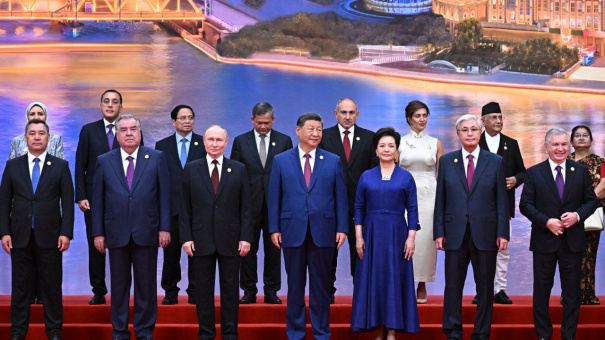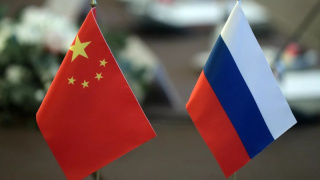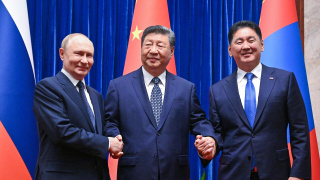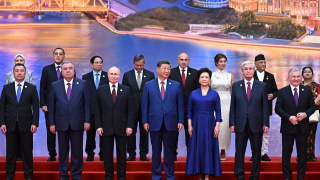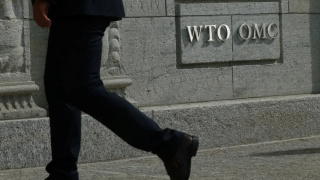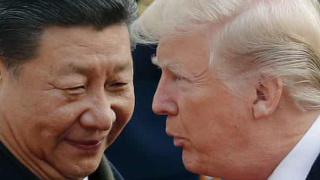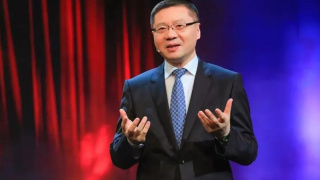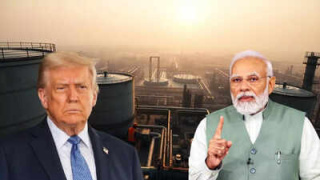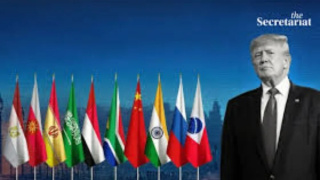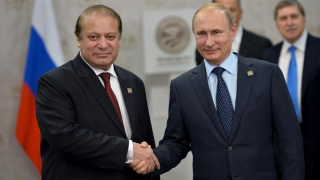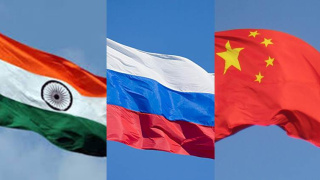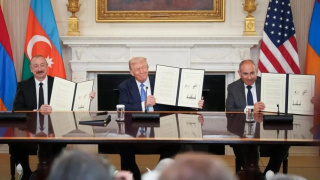Multipolar world takes giant step during Tianjin SCO summit
Amid US President Donald Trump’s threats of a tsunami of tariffs on three key emerging economies—Russia, India and China, the leaders of the troika–Chinese President Xi Jinping, Narendra Modi of India and Russia’s President Vladimir Putin– did enough damage during their assemblage in Tianjin to give the Trump administration sleepless nights.
In response to American pressure, the trio made it a point to demonstrate their solidarity; in fact their commitment to reject old rules and define new ones to govern the international system.
For starters, at a time when the pack of wolves from Trump’s arena–the likes of Peter Navarro and Scott Bessent were trying to hemorrhage India’s oil purchases from Russia, Prime Minister Modi, at Tianjin for the SCO summit, was doing exactly the opposite.
Just to get the message absolutely clear, Modi took the extraordinary step of inviting Putin in his limousine while heading for direct talks following SCO plenary. The two then rode together making sure that there were enough cameras to film them during their ride.
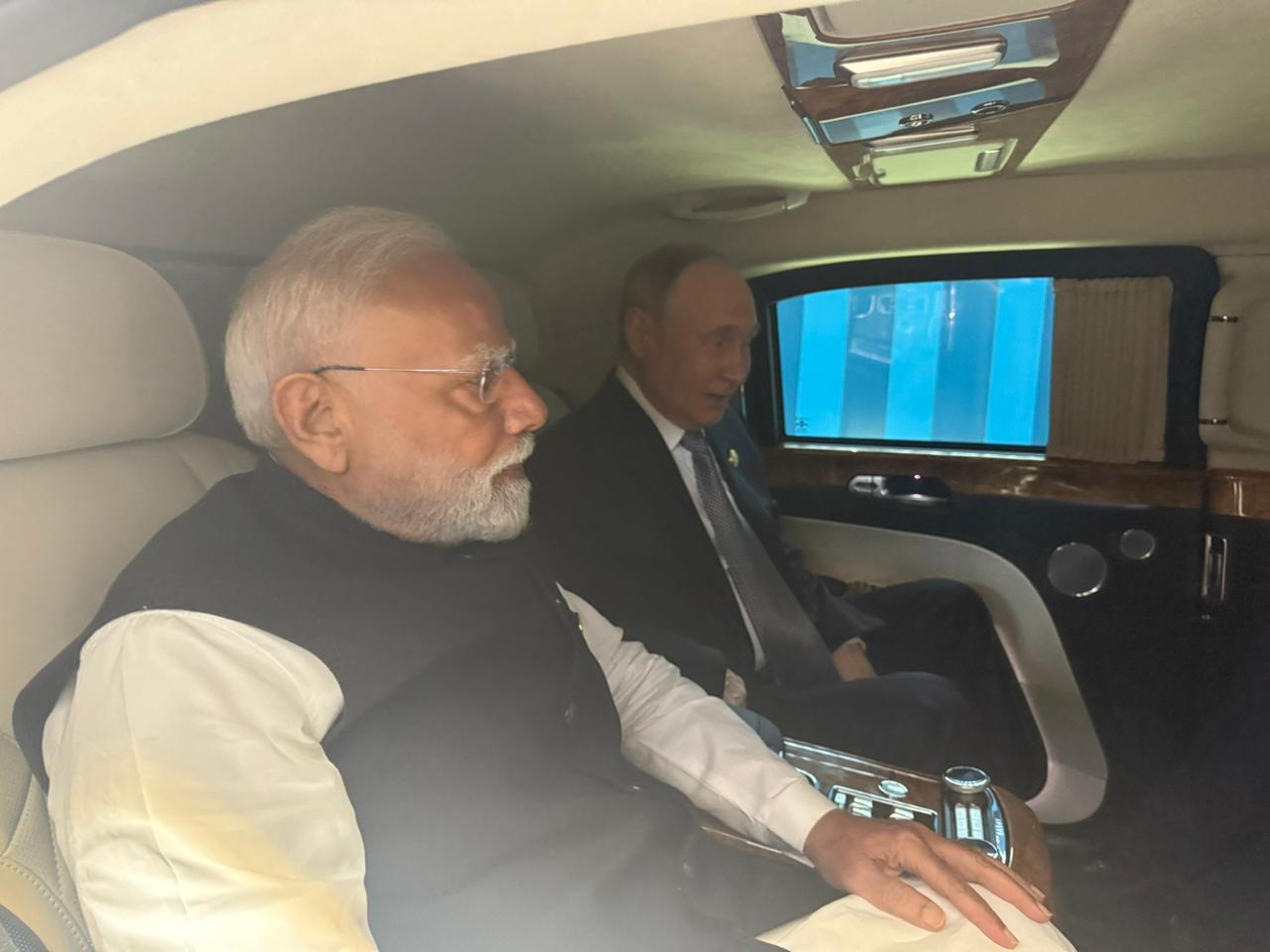
And then to rub salt on wounds, Putin called Modi his “dear friend”. Modi reciprocated: “Always a delight to meet President Putin!”Modi said on X, suitably posting pics of his patent bear hugs with the Russian leader.
Modi also went public to declare that far from stepping aside, India intended to “deepen bilateral cooperation in all sectors” with Russia. The defiance towards Navarro and his ilk could not have been bolder.
“Had an excellent meeting with President Putin on the sidelines of the SCO Summit in Tianjin. Discussed ways to deepen bilateral cooperation in all sectors, including trade, fertilisers, space, security and culture. We exchanged views on regional and global developments, including the peaceful resolution of the conflict in Ukraine. Our Special and Privileged Strategic Partnership remains a vital pillar of regional and global stability,” Modi wrote on X.
Then there were visuals of Putin, Modi walking together, with hands tightly clasped, halting to amiably chat with Xi just before the 10-nation summit went into high gear.
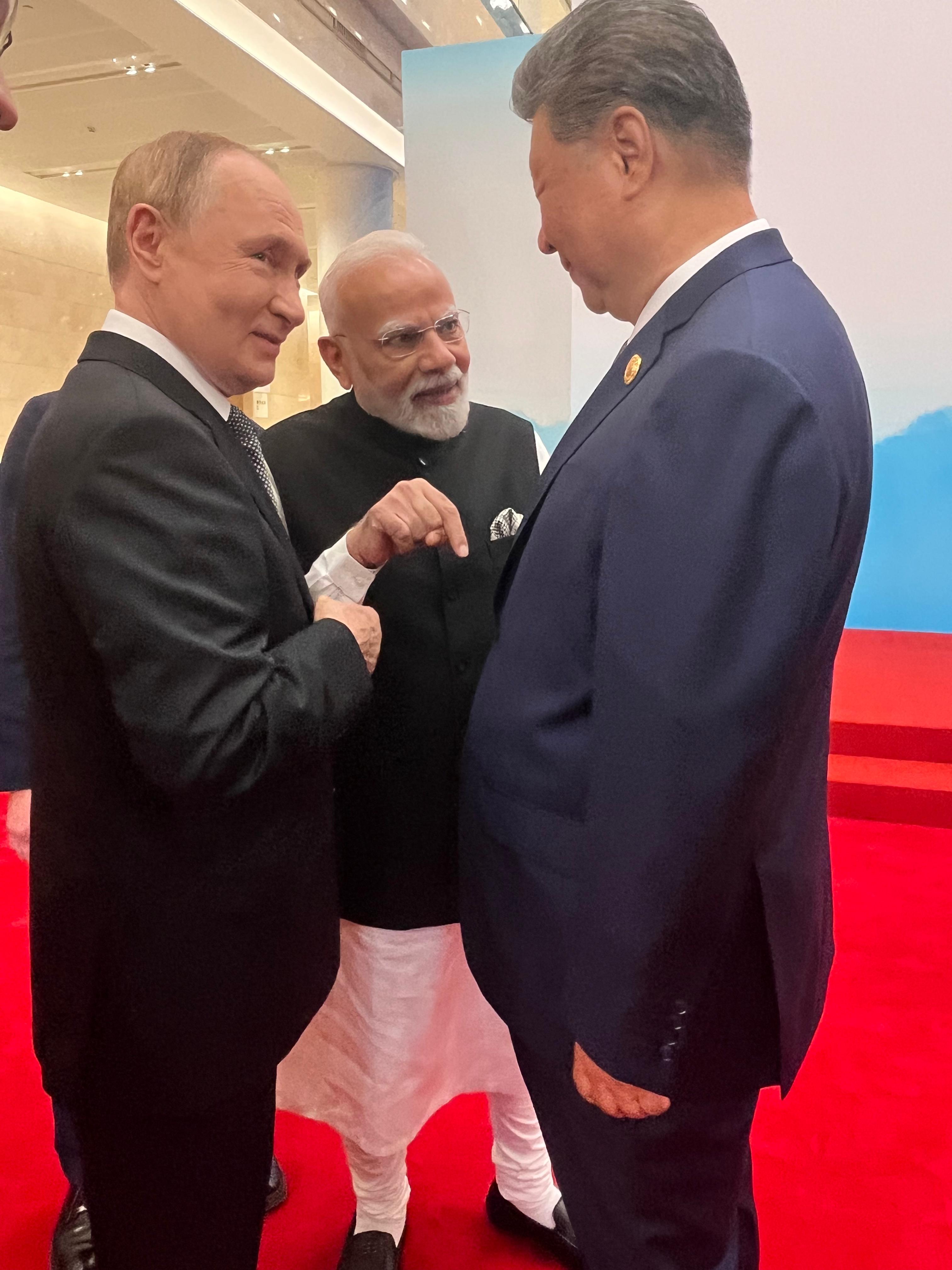
These pictures have opened speculation about whether the informal impromptu conversation is a precursor of a more formal conclave of Russia-India-China (RIC) sub-group–the core of the larger BRICS.
But symbolism and optics apart, substantive ground was covered in Tianjin that the international system was undergoing a visible shift. The unipolar world led by the US-led collective west was undergoing a roaring transition towards a multipolar world, steered not by the G-7, but the emerging economies of the BRICS+ now comprising 14 nations, each carrying substantial weight of their own.
Three major themes that surfaced during the Tianjin SCO summit showcased the paradigm shift that was taking place in the international system.
First, on the geoeconomic plain, President XI proposed early formation of a SCO multilateral bank.
"It is necessary to create the Development Bank of the Shanghai Cooperation Organization as soon as possible in order to boost cooperation between member states in the security and economy spheres," the Chinese leader said.
Xi said he expected cooperation to be enhanced in areas such as energy, infrastructure, green industry, digital economy, sci-tech innovation and artificial intelligence. China is the front runner in all of the above tech spheres.
In case Xi walks the talk which is not improbable, the emergence of a new lender will further erode the power and the influence of the two western-dominated multilateral banks–the World Bank and the International Monetary Fund (IMF).
Formed at the end of World War II as a result of the Bretton Woods charter, the two banks have been notorious in enforcing the western diktat on poor nations of the Global South.
But with the formation of two new multilateral banks–the Shanghai based New Development Bank of the BRICS and the Asian Infrastructure Investment Bank (AIIB) headquartered in Beijing, the financial clout of the IMF and the World Bank has been somewhat eroded. But, with the formation of the SCO Bank, western geoeconomic influence on the Global South countries in Eurasia will be further reduced.
Along with Xi, President Putin too targeted western financial hegemony at Tianjin, when he called for SCO’s collective self-reliance in raising funds. The Russian President proposed that the 10 members of the SCO should sell joint bonds, a step that would mark a major deepening of their economic cooperation.
Putin went a step further and proposed a joint payments system for trade settlements.
Russia, he said, backed "the creation of our own payment, settlement and depository infrastructure" and "the formation of a bank of joint investment projects".
"All this will increase the effectiveness of our economic exchanges and protect them from fluctuations in the external environment," Putin observed.
Second, in terms of ideology, India and Russia openly called for the revival of traditional values and recourse to deep civilizational values to anchor a post-west multipolar world.
In his remarks, Modi called for a civilizational dialogue focusing on ancient civilizations, heritage, art, literature and bringing these unique attributes to the world stage.
On his part, Putin stressed traditional values to be brought on the global agenda.“These traditional values are receding into the background of the global agenda. It’s high time to bring them back there,"
Third, all the three leaders advocated a special relationship with the Global South. The Chinese President stressed that with “ concerted efforts, the SCO will play an even greater role in strengthening unity, amplifying the voice of the Global South and contributing to the progress of human civilisation”.
Putin and Modi too focused on the Global South during their utterances in Tianjin. Putin specifically emphasized that the SCO is becoming a powerful platform for amplifying the voice of the Global South, particularly for reshaping global governance and challenging western dominance. Modi, on his part, sought to position India as the leading voice of the Global South. He stressed that the aspirations of the Global South “cannot be confined to outdated frameworks”, calling it a “grave injustice to future generations”.
Modi advocated reforms in global institutions, including the United Nations, to better reflect the realities and voices of emerging economies.
The Tianjin SCO summit also saw a positive recalibration of ties between India and China–the two key pillars of multipolarity, reflected in their presence in the SCO as well as the BRICS.
It appeared from statements from both sides that India-China relations have been revamped following the meeting between Xi and Modi on September 1, on the sidelines of the SCO summit.
Cai Qi, a member of the Standing Committee of the Political Bureau of the CPC Central Committee–China’s top decision making body–pointed out that during their meeting Xi and Modi arrived at a “new important consensus”.
Cai’s formulation points to an evolution in Xi and Modi’s understanding in steering the India-China relations, which had gone downhill in June 2020 when border troops of both countries engaged in an unarmed clash. But the relationship began to look up after the October 2024 BRICS summit held in Kazan, where Modi and Xi had met. The Trump factor has now apparently galvanized the Kazan process.
The Associated Press quoted Modi as saying that "India and China both pursue strategic autonomy, and their relations should not be seen through a third country lens."
The statement deserves deeper reflection. Modi’s remarks reveal an underlying theme of India’s foreign policy. India now genuinely believes that like China, it is a major pole of the international system. That implies that it is a civilizational state that commands comprehensive national power. Consequently, it is entitled to exercise its national sovereignty by simultaneously engaging with all, including rival poles, of the multipolar system without looking over its shoulder. On the ground it means that as an independent pole New Delhi can simultaneously engage with the four-nation Quad in the Indo-Pacific, as well as the BRICS and the SCO.
Modi is of the view that both India and China, as powerful fellow civilizational states, are entitled to exercise their strategic autonomy. As a result they need to develop and expand relations with each other on their own steam and interests, insulated from their other external engagements, or what Modi called a “third country lens”.
Apparently, in tune with their existence and acceptance as independent poles of the multipolar system, President Xi pointed out, during his meeting with Modi that the two sides "should view and handle bilateral relations from a strategic and long-term perspective," according to Chinese state news agency Xinhua. He added that ties between the two rising powers will advance steadily as long as China and India see each other as "partners rather than rivals" and focus on "opportunities for development rather than threats."
The Chinese president added that joint efforts are needed to maintain "peace and tranquility" at the border, and that territorial issues should not define the relationship.
With Trump’s tariff’s looming in the background, Modi stressed that the two sides "recognized the role of their two economies to stabilize world trade."
"They underlined the need to proceed from a political and strategic direction to expand bilateral trade and investment ties and reduce trade deficit," a readout released at the end of the meeting said.
At a more fundamental level, the roller coaster diplomatic ride in Tianjin shows that a tectonic shift in the international system is happening. Russian philosopher, Alexander Dugin points out that the push towards a trilateral constellation of Russia, India, China following Trump’s 50 per cent tariffs, is imparting an altogether new dimension to multipolarity.
Dugin nails the exit of India, China and Russia from the dollar zone, if it happens, as the next pivotal step, following which, “ Western colossus with feet of clay will collapse”.
“Multipolarity, civilizational sovereignty, and the rejection of the universality of the West (“Westernology”) must become the backbone of policy, industry, economy, education, geopolitics, and the financial systems of these three countries, upon which the new world order will henceforth be built”, Dugin observes.
